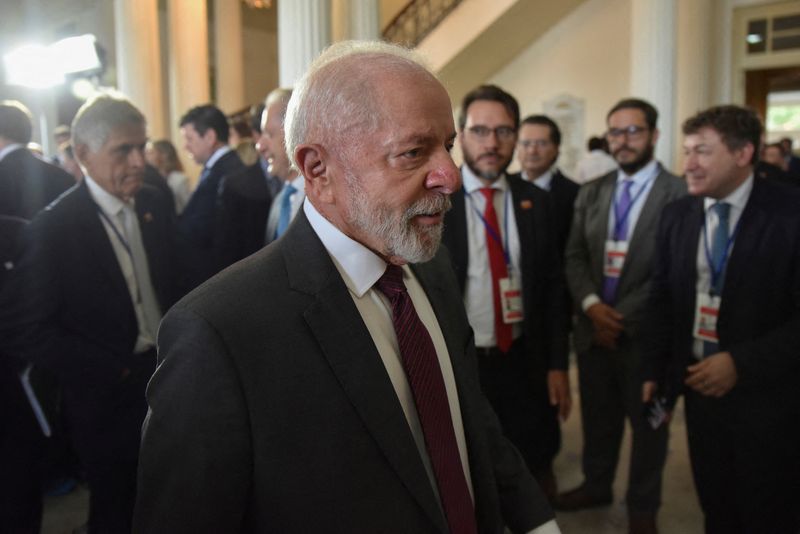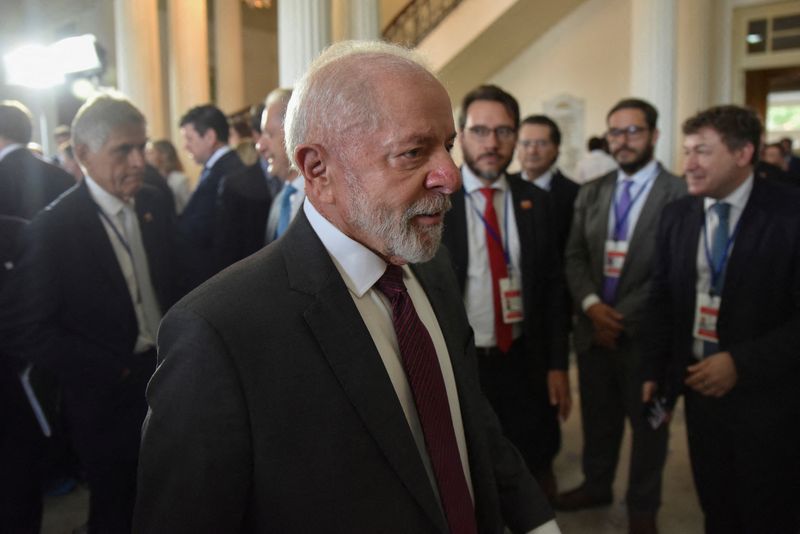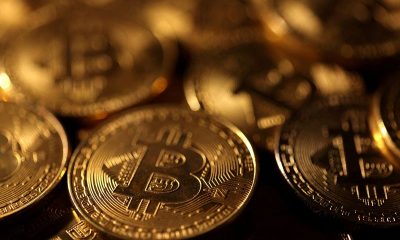Forex
Brazil currency faces volatility as Lula criticises rates, central bank intervenes

SAO PAULO (Reuters) -Brazil’s currency faced a choppy market on Monday, opening sharply lower against the U.S. dollar after renewed criticism of interest rate levels by President Luiz Inacio Lula da Silva but paring losses after a central bank intervention.
Speaking in an interview with TV Globo aired late on Sunday, the leftist leader called the interest rate hikes “irresponsible” and said his government would “take care of that,” hinting at potential policy changes ahead.
Next (LON:) year, the central bank rate-setting board will have a majority of members chosen by Lula, including his pick for governor.
The Brazilian real initially weakened 1% against the U.S. dollar, continuing a steep decline triggered by market disappointment with a much-anticipated spending cut package unveiled by the government in late November.
But losses were trimmed after the central bank announced a spot dollar auction in which it sold $1.63 billion, a move it had also deployed on Friday. The bank will also hold a dollar-denominated auction with repurchase agreements for up to $3 billion on Monday.
Latin America’s largest economy has seen its currency lose nearly 20% this year, ranking among the worst performers in emerging markets.
The downward trend persisted despite the central bank’s move earlier this month to accelerate its monetary tightening pace with a 100-basis-point hike, bringing interest rates to 12.25%, and signal matching moves for the next two meetings.
“The only thing wrong in this country is the interest rate being above 12%. There is no explanation,” Lula said in the interview after being discharged from hospital following emergency surgeries to treat and prevent bleeding in his head.
“Inflation is around 4%, fully controlled,” he added. “The irresponsible ones are those who are hiking interest rates, not the federal government. But we will take care of that.”
The central bank’s hawkish move this month cited the market’s negative reception of the fiscal package as a factor worsening inflation dynamics, as inflation expectations drift away from the regulator’s 3% target.
A weekly central bank survey of private economists continued to show higher median inflation forecasts for this year and the next, despite economists now projecting interest rates to peak at 14.25% in March.
Brazil’s 12-month inflation ended November at 4.87%, above the upper end of the bank’s 1.5% to 4.5% target range, while policymakers have vowed to bring inflation back to 3%.
Lula has been a vocal critic of high interest rates and slammed central bank governor Roberto Campos Neto, an appointee of former right-wing President Jair Bolsonaro, multiple times since taking office for a third non-consecutive term in 2023.

Campos Neto’s term ends this month and he will be replaced by Lula-nominated Gabriel Galipolo.
Next year Lula appointees will hold a 7-2 majority on the bank’s nine-member rate-setting committee, up from the current 4-5 minority.

 Forex3 years ago
Forex3 years agoForex Today: the dollar is gaining strength amid gloomy sentiment at the start of the Fed’s week

 Forex3 years ago
Forex3 years agoUnbiased review of Pocket Option broker

 Forex3 years ago
Forex3 years agoDollar to pound sterling exchange rate today: Pound plummeted to its lowest since 1985

 Forex3 years ago
Forex3 years agoHow is the Australian dollar doing today?

 Cryptocurrency3 years ago
Cryptocurrency3 years agoWhat happened in the crypto market – current events today

 World3 years ago
World3 years agoWhy are modern video games an art form?

 Commodities3 years ago
Commodities3 years agoCopper continues to fall in price on expectations of lower demand in China

 Economy3 years ago
Economy3 years agoCrude oil tankers double in price due to EU anti-Russian sanctions

























